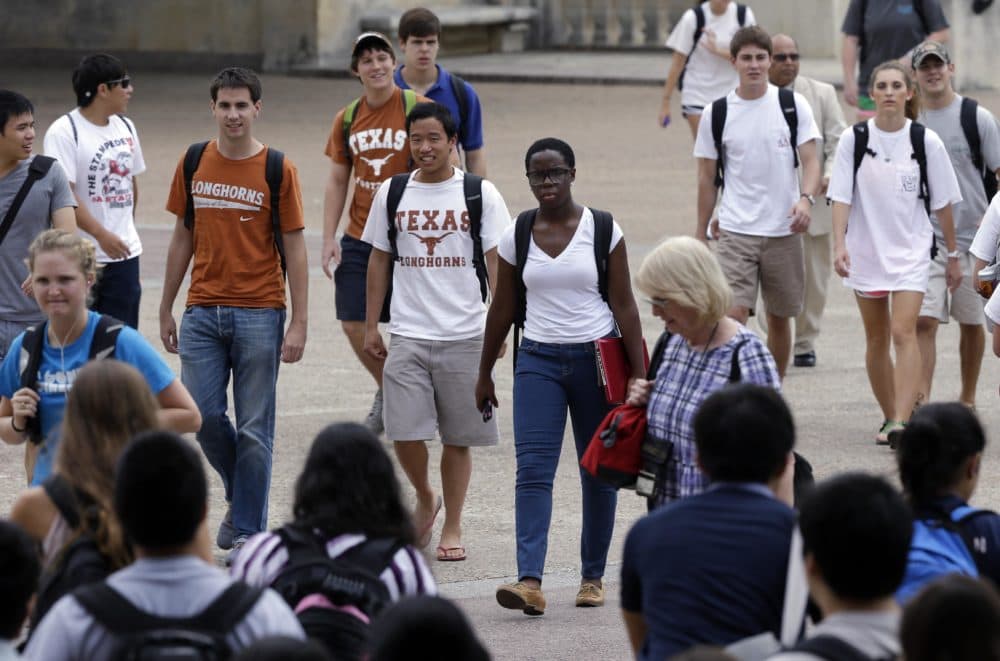Advertisement
Affirmative Action At The High Court
ResumeThe Supreme Court picks up another hot potato. Affirmative Action is back before the high court. We’ll look at the issue and the stakes.

Affirmative action is once again before the US Supreme Court this week. Tomorrow. Racial preferences in college admissions. This time the case is out of Texas. A white high school grad who didn’t make it into UT Austin has sued. She says racial preferences unfairly kept her out.
Nine years ago the high court narrowly ruled that race could be a factor in admissions. But the court has changed. It could end it. Maybe the country’s changed, too. And maybe not.
This hour, On Point: affirmative action across the country, and headed, again, for the Supreme Court.
-Tom Ashbrook
Guests
Joan Biskupic, Supreme Court reporter for Reuters.
Stuart Taylor, Jr., a legal journalist, he's the author of Mismatch: How Affirmative Action Hurts Students It’s Intended to Help, and Why Universities Won’t Admit It. You can find his recent L.A. Times op-ed here.
Randall Kennedy, professor at Harvard Law School. He's the author of several books, including The Persistence of the Color Line: Racial Politics and the Obama Presidency.
From Tom's Reading List
Washington Post "Gail Heriot and two other members of the U.S. Commission on Civil Rights would like the Supreme Court to know that new research indicates that race-preferential admissions to America’s top universities are hurting those they are supposed to help."
L.A. Times "Affirmative action, long one of America's most divisive social issues, is about to grab headlines again. On Wednesday, the U.S. Supreme Court will hear arguments in a challenge to a state university's use of race in selecting students."
The Root "The blame for the inadequate nature of our conversation about affirmative action must be shared by civil rights organizations and right-wing groups. In the late '70s and early '80s, when right-wing groups and the Reagan Justice Department were engaged in a full-frontal attack on affirmative action, civil rights organizations were hard at work fighting the toughest cases in the courts. What civil rights organizations were not doing was fighting the right on the terrain of America's hearts and minds. Of course, civil rights leaders thought that they had fought that battle already. The civil rights movement was not just a monumental legal and legislative victory over institutionalized racism in the U.S.; it was also — and perhaps more importantly — a moral victory over the idea of white supremacy."
Excerpt: Mismatch
This program aired on October 9, 2012.